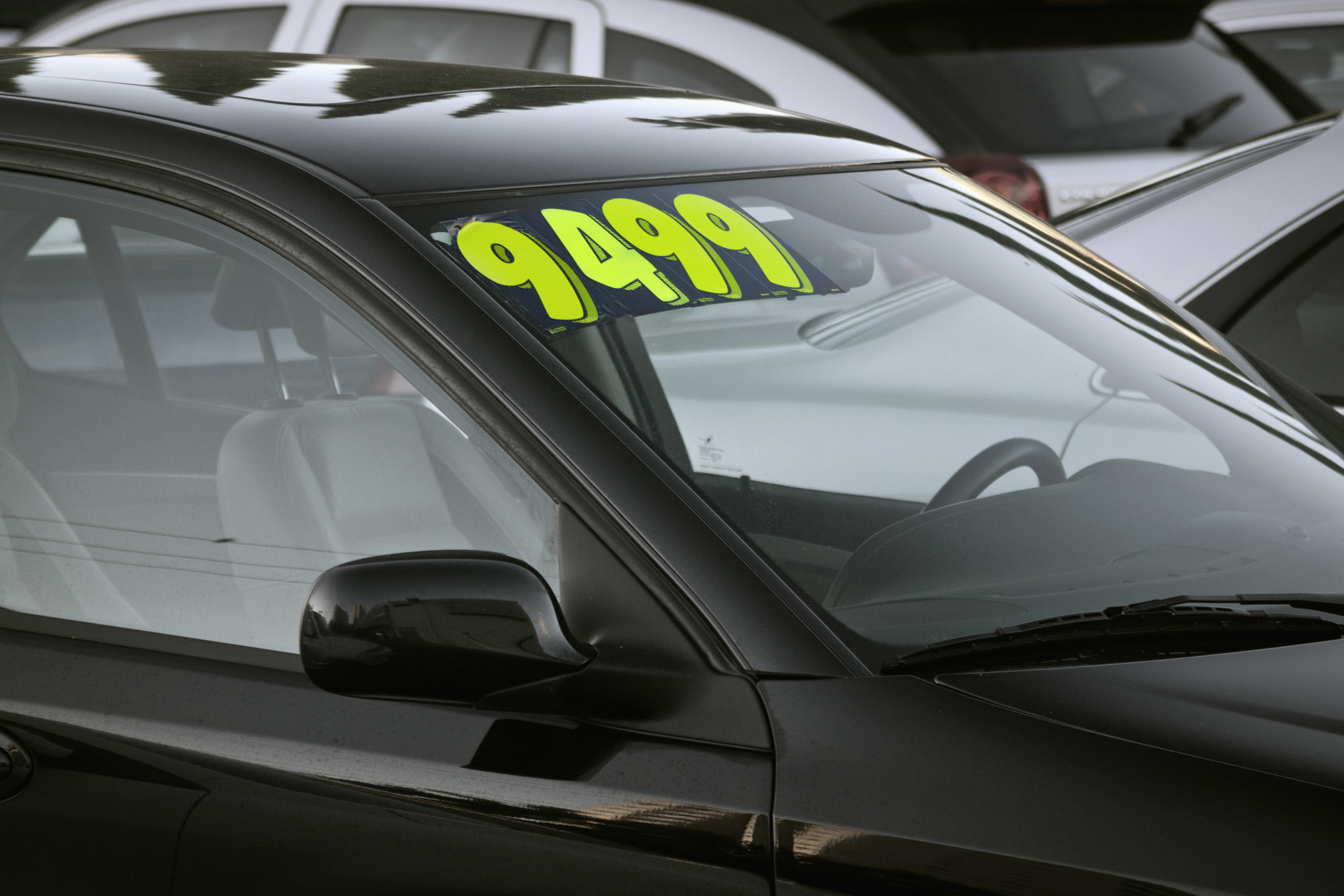Why Used Car Prices Are Rising After Months of Declines
Used car prices had been dropping consistently from pandemic highs, until the latest CPI data's surprising spike.


Profit and prosper with the best of Kiplinger's advice on investing, taxes, retirement, personal finance and much more. Delivered daily. Enter your email in the box and click Sign Me Up.
You are now subscribed
Your newsletter sign-up was successful
Want to add more newsletters?

Delivered daily
Kiplinger Today
Profit and prosper with the best of Kiplinger's advice on investing, taxes, retirement, personal finance and much more delivered daily. Smart money moves start here.

Sent five days a week
Kiplinger A Step Ahead
Get practical help to make better financial decisions in your everyday life, from spending to savings on top deals.

Delivered daily
Kiplinger Closing Bell
Get today's biggest financial and investing headlines delivered to your inbox every day the U.S. stock market is open.

Sent twice a week
Kiplinger Adviser Intel
Financial pros across the country share best practices and fresh tactics to preserve and grow your wealth.

Delivered weekly
Kiplinger Tax Tips
Trim your federal and state tax bills with practical tax-planning and tax-cutting strategies.

Sent twice a week
Kiplinger Retirement Tips
Your twice-a-week guide to planning and enjoying a financially secure and richly rewarding retirement

Sent bimonthly.
Kiplinger Adviser Angle
Insights for advisers, wealth managers and other financial professionals.

Sent twice a week
Kiplinger Investing Weekly
Your twice-a-week roundup of promising stocks, funds, companies and industries you should consider, ones you should avoid, and why.

Sent weekly for six weeks
Kiplinger Invest for Retirement
Your step-by-step six-part series on how to invest for retirement, from devising a successful strategy to exactly which investments to choose.
Car buyers got a rude surprise on used car prices yesterday. April's Consumer Price Index report revealed that used vehicles are getting more expensive again after an uninterrupted decline since July 2022. Here's what happened, and what buyers can expect next.
The used car price rollercoaster
In June 2021, used cars had risen so far that they accounted for a full third of the year-on-year inflation rate, according to Quartz. At that point, pandemic-related supply disruptions and a misreading of customer demand meant manufacturers struggled to procure parts and chips for new cars. This trickled down into a lack of supply and soaring prices in the used car market.
As the pandemic eased and supply chains unkinked, the used car market started to cool off. Before this latest CPI report, Kelley Blue Book reported that used cars had dropped for months thanks to new cars steadily entering the market and feeding the supply of used cars, as well as consumers who refused to stop spending in the face of continued inflation.
From just $107.88 $24.99 for Kiplinger Personal Finance
Become a smarter, better informed investor. Subscribe from just $107.88 $24.99, plus get up to 4 Special Issues

Sign up for Kiplinger’s Free Newsletters
Profit and prosper with the best of expert advice on investing, taxes, retirement, personal finance and more - straight to your e-mail.
Profit and prosper with the best of expert advice - straight to your e-mail.
The sudden spike - and what comes next
The nine month streak of good news snapped with the April CPI report, which showed used car prices rose by 4.4% month-over-month. So, what happened?
CNN reported in February that auto wholesaler Mannheim registered a 4% jump in its average wholesale used car price in the middle of February, which was likely to trickle down to individual car buyers. CPI data usually takes some time to register these shifts, which eventually showed up in the April data.
Experts had also predicted that dealers would hoard used cars for the start of April, when millions of Americans were receiving their tax refunds. They also predicted prices would start to fall again shortly thereafter as refunds dried up in the weeks following Tax Day.
Sure enough, Kelly Blue Book reported in late April on a real-time drop in wholesale used car prices, predicting that "retail prices are likely to fall once the pricier cars have all sold. That could take a month or more."
This downshift in prices should show which means used car inflation will retreat again later in future CPI reports. Buyers in the market now should monitor prices to see this wholesale price cuts trickle into the consumer market as we inch toward summer.
If you're looking for auto insurance for your newly-purchased ride, shop around using our new comparison tool — in partnership with Bankrate:
How to save on used cars
No matter the market forces or average price, car buyers can boost their chances of finding a good used car deal with these tips:
- Consider smaller cars with higher fuel economy and less-premium electric vehicles like the Chevrolet Bolt and Nissan Leaf.
- Avoid leases that sharply restrict mileage (often to as little as 10,000 miles per year) and drive up the price of late-model used cars.
- Review the reliability and popularity of a potential purchase via Consumer Reports, Autotrader and Kelley Blue Book.
- Look for 2/3-year-old used vehicles that have already seen most of their value depreciation.
- Consider newer vehicles with higher mileage, such as used rental cars that are well-maintained and usually carry lower prices.
- Check out all-digital used-car sites including Shift and Vroom, which perform full vehicle inspections, offer seven-day returns, and feature lower prices thanks to a lack of dealerships.
Related Content
Profit and prosper with the best of Kiplinger's advice on investing, taxes, retirement, personal finance and much more. Delivered daily. Enter your email in the box and click Sign Me Up.

Ben Demers manages digital content and engagement at Kiplinger, informing readers through a range of personal finance articles, e-newsletters, social media, syndicated content, and videos. He is passionate about helping people lead their best lives through sound financial behavior, particularly saving money at home and avoiding scams and identity theft. Ben graduated with an M.P.S. from Georgetown University and a B.A. from Vassar College. He joined Kiplinger in May 2017.
-
 Dow Adds 1,206 Points to Top 50,000: Stock Market Today
Dow Adds 1,206 Points to Top 50,000: Stock Market TodayThe S&P 500 and Nasdaq also had strong finishes to a volatile week, with beaten-down tech stocks outperforming.
-
 Ask the Tax Editor: Federal Income Tax Deductions
Ask the Tax Editor: Federal Income Tax DeductionsAsk the Editor In this week's Ask the Editor Q&A, Joy Taylor answers questions on federal income tax deductions
-
 States With No-Fault Car Insurance Laws (and How No-Fault Car Insurance Works)
States With No-Fault Car Insurance Laws (and How No-Fault Car Insurance Works)A breakdown of the confusing rules around no-fault car insurance in every state where it exists.